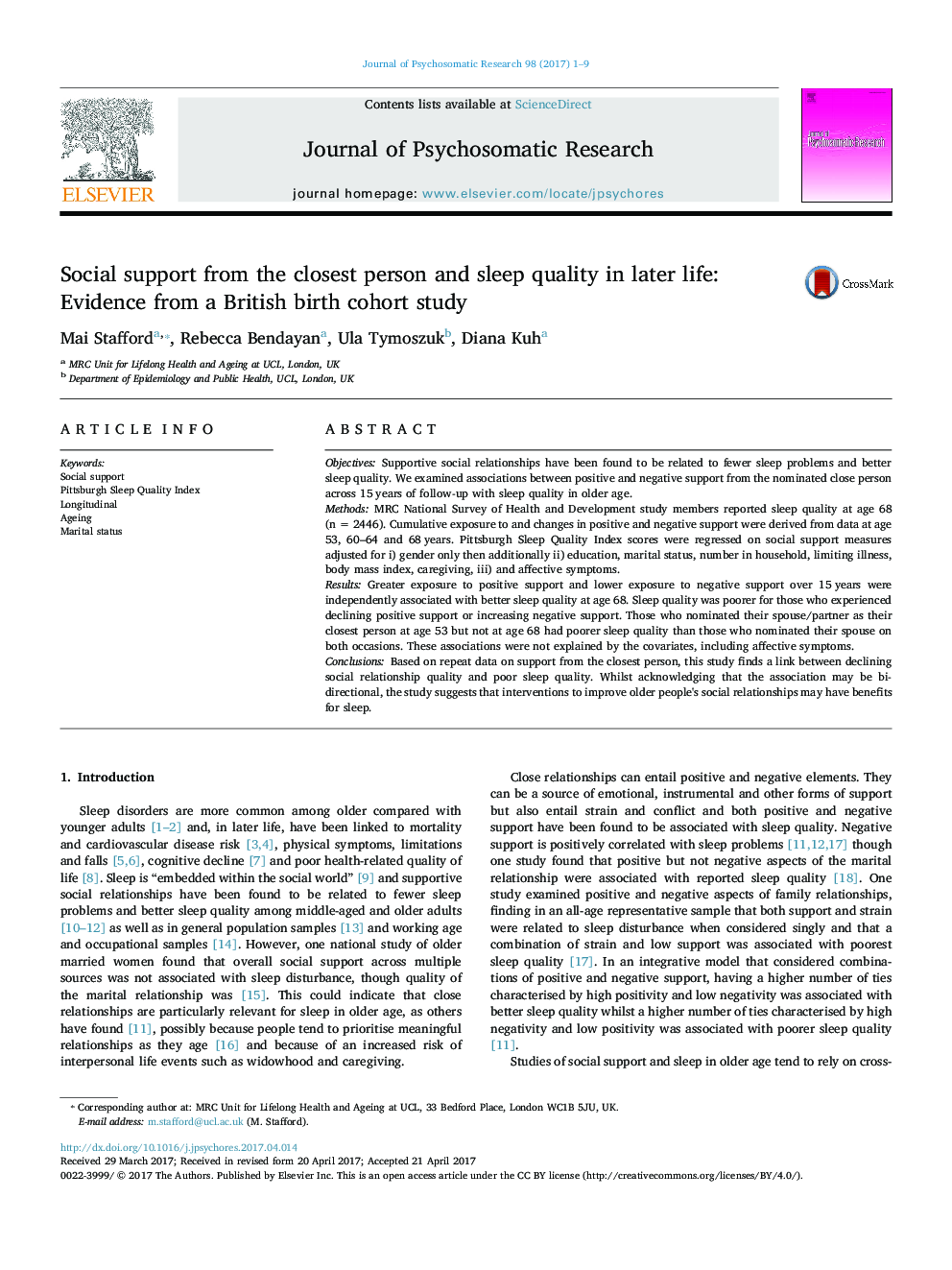| کد مقاله | کد نشریه | سال انتشار | مقاله انگلیسی | نسخه تمام متن |
|---|---|---|---|---|
| 5045934 | 1475897 | 2017 | 9 صفحه PDF | دانلود رایگان |
- We prospectively examined close social relationships and older people's sleep quality.
- Greater cumulative positive support over 15Â years was associated with better sleep.
- Independently of this, lower exposure to negative support was linked to better sleep.
- Nominating spouse as the closest person at baseline but not follow-up was linked to poorer sleep.
- Associations were not fully attenuated by education, marital status, illness or depression.
ObjectivesSupportive social relationships have been found to be related to fewer sleep problems and better sleep quality. We examined associations between positive and negative support from the nominated close person across 15 years of follow-up with sleep quality in older age.MethodsMRC National Survey of Health and Development study members reported sleep quality at age 68 (n = 2446). Cumulative exposure to and changes in positive and negative support were derived from data at age 53, 60-64 and 68 years. Pittsburgh Sleep Quality Index scores were regressed on social support measures adjusted for i) gender only then additionally ii) education, marital status, number in household, limiting illness, body mass index, caregiving, iii) and affective symptoms.ResultsGreater exposure to positive support and lower exposure to negative support over 15 years were independently associated with better sleep quality at age 68. Sleep quality was poorer for those who experienced declining positive support or increasing negative support. Those who nominated their spouse/partner as their closest person at age 53 but not at age 68 had poorer sleep quality than those who nominated their spouse on both occasions. These associations were not explained by the covariates, including affective symptoms.ConclusionsBased on repeat data on support from the closest person, this study finds a link between declining social relationship quality and poor sleep quality. Whilst acknowledging that the association may be bi-directional, the study suggests that interventions to improve older people's social relationships may have benefits for sleep.
Journal: Journal of Psychosomatic Research - Volume 98, July 2017, Pages 1-9
